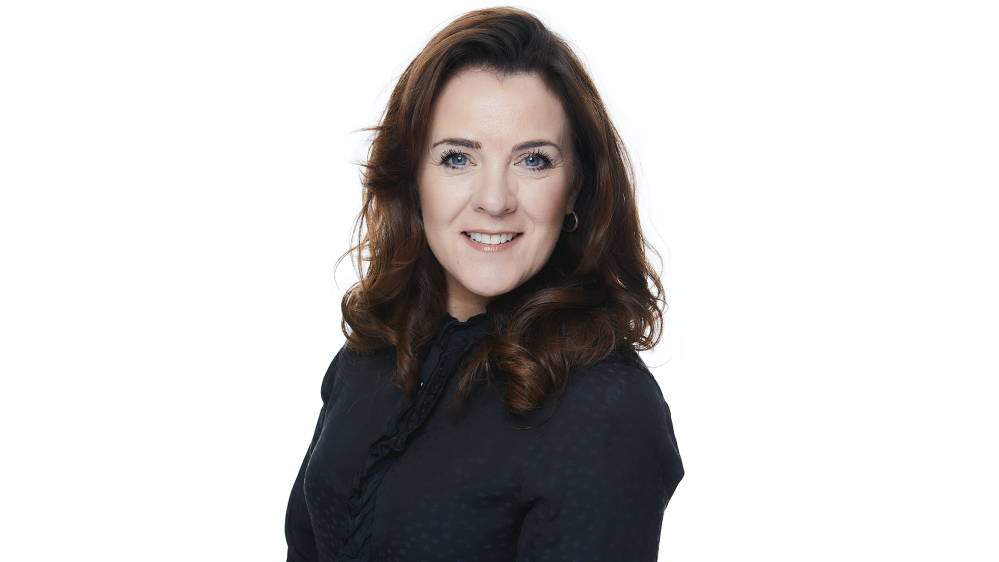


Ministers are being urged to speed up introducing a law helping to crack down on the "phenomenal amount" of food waste in Jersey, as "people are going hungry" while supermarkets, canteens and chefs often find themselves having to throw away "good food".
The calls come from environmental activists and a local family nutrition charity, who think Jersey needs to align itself with best practice being adopted by other countries.
A draft Food Law, which contains provisions aiming to reduce food waste, was approved by States Members in December but is yet to be brought into in force. It does not, however, make it illegal to throw away food.
Sheena Brockie – local sustainability consultant and co-founder of Plastic Free Jersey, Climate-Guides and Grow Jersey – says the island should be following the example of France, where supermarkets have been banned from throwing away unsold food that could be donated to charities since 2016.
Speaking from her experience of 'dumpster dining' when she raided supermarket bins to prove how much quality food was being thrown away, Sheena said that there is a "horrific" amount of food disposed of each day in Jersey, with some shops guilty of getting rid of "four or five bins full of food each day".
"The bins are chained up and locked away to prevent people from taking food from them – even if it's edible!" she added.
Sheena admitted that she understands that the Government's environmental focus is elsewhere in the carbon neutral efforts, with food waste accounting for a much smaller amount of Jersey's carbon footprint in comparison to other factors such as travel.
Despite this, Sheena said that introducing a food waste law would be a "quick win" in terms of both environmental and charitable impact.
"The reality is that people are going hungry whilst supermarkets are throwing away good food," she added.
"We should not be letting people go hungry. There needs to be a focus on humanity, not just carbon footprint."

Pictured: Sheena described her experience of 'dumpster dining', during which she witnesses supermarkets throw away multiple bins full of edible food.
Yvonne Corbin, Chief Executive Officer of charity Caring Cooks, agreed with Sheena's calls, explaining that "decisive action" must be taken to tackle unnecessary food waste.
"It is evident that food prices are not decreasing, and many families and charities are struggling to meet their nutritional needs. Addressing this issue should be a top priority," she said.
"The unnecessary waste of food is both upsetting and unsustainable, and we must take decisive action to tackle this problem."
The charity, which supports islanders struggling to feed their families, is facing its biggest challenges yet with waiting lists currently the longest they’ve ever been.
The CEO explained: "From our perspective at Caring Cooks, as a charity focused on providing meals, we can attest to the significant struggles that charities face with food costs.
"It is disheartening to witness the amount of food waste that occurs, especially when there are families and other charitable organisations in need."
However, Yvonne acknowledged that a "crucial aspect of the problem lies in complying with Food Hygiene and Environmental Health regulations".
She said: "I fully understand the concerns surrounding food safety and the inherent risks involved in handling cooked food and the risks when re-heating certain foods.
"We have faced similar challenges in our subsidiary, Flourish, which specifically focuses on providing school meals. The potential for cross-contamination, the inability to reheat certain cooked food items and safe food transportation are significant obstacles when charities request ‘leftovers’."

Pictured: The team from Flourish, a subsidy of Caring Cooks which specifically focuses on providing school meals.
Yvonne continued: "One suggestion would be to transfer the responsibility for food safety to the end-user once the food leaves the supplier's premises. This would relieve the food supplier of liability. Implementing disclaimers or similar measures could help achieve this goal.
"The primary objective is to shift the burden from the supplier to the receiver, allowing for the distribution of safe, unsaleable but edible food while reducing food waste."
Following rising levels of inflation earlier this year, Yvonne previously described "an absolute and increasing need for support with food in Jersey".
UK inflation statistics released this week showed that the overall food inflation had dropped 1.4% between May and June – but, standing at 17.3%, it still remains painfully high for many. Jersey's latest bulletin reporting rises in the cost-of-living is due out tomorrow.
Yvonne explained in March that she was seeing people from all walks of life choosing to use a microwave instead of an oven due to wanting to save on electricity bills.

Pictured: Yvonne Corbin, CEO of Caring Cooks.
"We are seeing cases of people at food banks in the UK turning down offers of potatoes and large vegetables as they are just too expensive to cook,” she added.
Yvonne went on to explain that microwave meals are often the cheaper and more convenient option for people with a limited grocery budget, particularly those who are working multiple jobs in order to make ends meet, but leave a lot to be desired nutritionally.
Sheena also acknowledged the same problem, explaining: "People who are in food poverty are often also in fuel poverty meaning that they cannot afford to cook."
However, she suggested that the answer could be to create a "production kitchen" which takes donated food items and repurposes them into hot meals, removing the need for those struggling to afford fuel to have to cook.
Comments
Comments on this story express the views of the commentator only, not Bailiwick Publishing. We are unable to guarantee the accuracy of any of those comments.